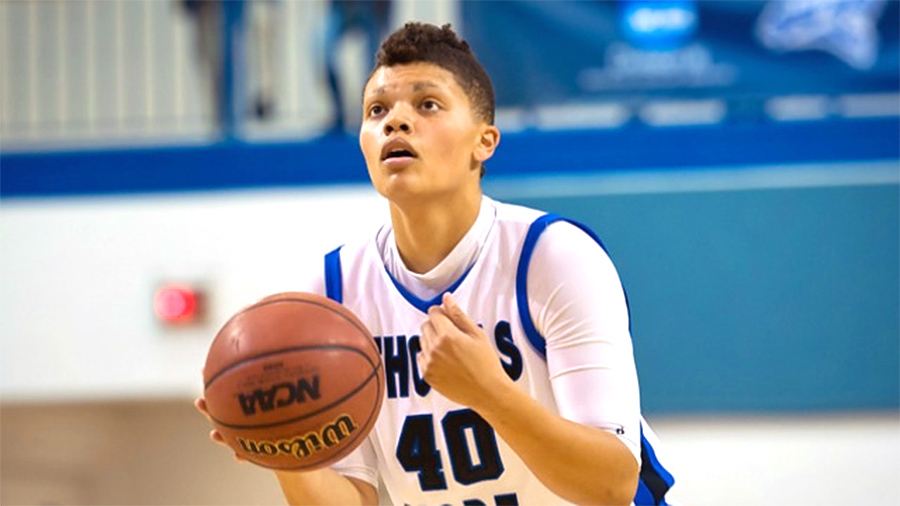The NCAA has forced Thomas More to forfeit one of its women’s basketball championship after finding that Sydney Moss, a star transfer from the University of Florida, was ineligible for multiple games.
According to WCPO.com:
Thomas More College has to forfeit one of its two consecutive national women’s basketball championships because star player Sydney Moss was found to be ineliglble during the early months of the 2014-15 season, the university announced Tuesday
Moss lived cost-free with a former assistant women’s basketball coach while recuperating from March 2014 knee surgery, according to an NCAA ruling. The housing arrangement – impermissible under NCAA rules – started in April 2014 and continued for the rest of the calendar year.
The NCAA ordered Thomas More’s 2015 Division III title vacated and imposed other penalties on program.
The NCAA imposed the following punishments on TMC:
– A vacation of all wins in which the student-athlete competed while ineligible.
– Public reprimand and censure for the college.
– Two years of probation from Nov. 15, 2016, through Nov. 14, 2018.
– A $2,500 fine (self-imposed by the college).
– An outside audit of the college’s athletics program, with an emphasis on financial aid policies and procedures. The school must implement all recommendations made by the reviewer (self-imposed by the college).
From the NCAA report:
“For eight months, the former assistant coach provided free housing to a student-athlete while she recovered from surgery. Even though the former assistant coach and his family had an existing relationship with the student-athlete, NCAA rules do not allow college employees to provide cost-free housing to student-athletes.
“While the student-athlete was living with the former assistant coach, three staff members learned of the arrangement and assumed it was permissible without checking to see if it would be allowed under NCAA rules. Because the staff members did not recognize the arrangement as an extra benefit, the student-athlete competed an entire season while ineligible.
“The head coach failed to monitor his former assistant coach when he was unaware of the living arrangement until the former assistant coach brought it to his attention. He approved of the situation until the athletics director learned of it and decided to end it due to the appearance of a student-athlete living with a coach. The head coach did not promote an atmosphere for compliance when he did not follow department protocol and seek clarification about the living arrangement with the athletics director.
“Throughout the entire process, individuals at the college misunderstood NCAA rules and believed the arrangement was permissible. The committee found the misunderstandings stemmed from the college’s failure to provide adequate rules education. Because of the lack of education, staff members were unable to recognize that the arrangement was impermissible and did not consult with others to make sure it followed the rules. Because it did not provide rules education and did not recognize the impermissible living arrangement, the college did not monitor its women’s basketball program.”


